Life can be tricky, sometimes it puts you through a personal financial crisis, and it may seem like there’s no way out.
But there is, and we’ll show you.
Here you’ll learn 17 useful ways to help you through your personal financial crisis and also prevent it from happening again.
So if you want to learn how to negotiate with creditors to lower your bills, which side hustles will pay good money now, or how to raise money quickly…
Read the helpful blog below.
What Is A Personal Financial Crisis?
A financial crisis is a situation where you cannot meet your financial obligations. This can be caused by several factors, such as job loss, medical bills, or unexpected expenses. Financial problems like this can quickly lead to debt and economic hardship.
If you’re facing a financial crisis, taking action immediately is crucial.
How Is A Personal Financial Crisis Prevented? (17 Helpful Tips)
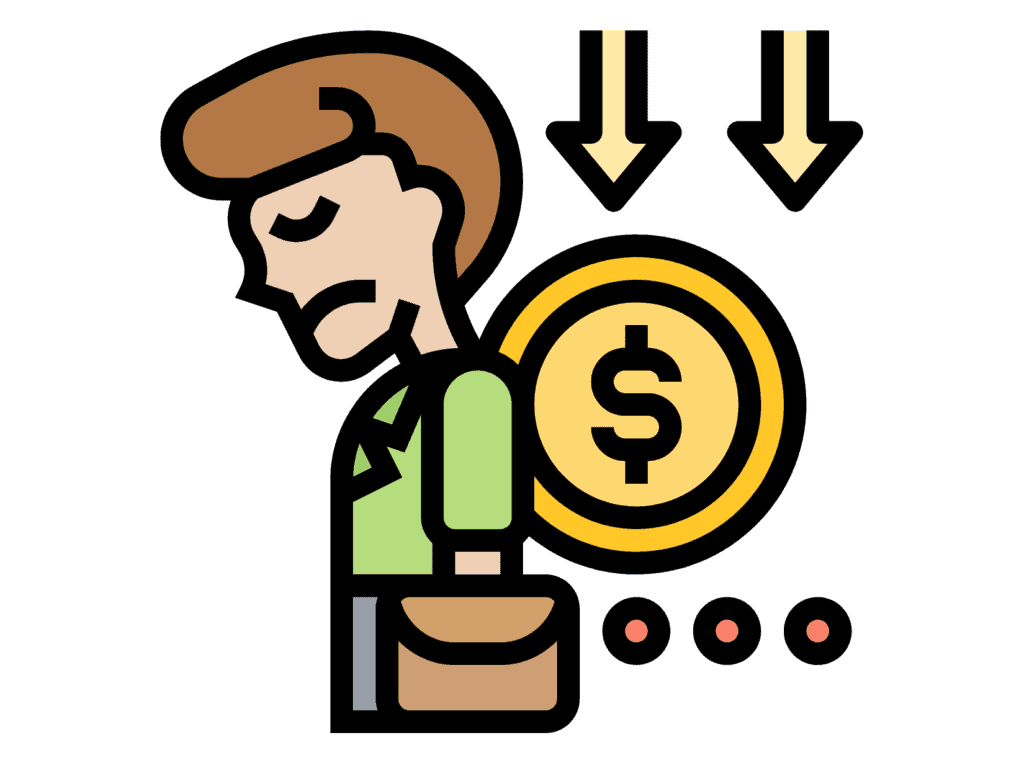
1. Take a Knee, Regain Your Emotions
When the financial crisis hits, it’s essential to pause and collect yourself. This will help you better assess the situation and make decisions based on logic instead of emotion.
Try breathing exercises: Inhale for 5 seconds, hold for 5 seconds, and release for 5 seconds. Repeat this three times. Or download the app Breathwrk to help you with breathing exercises.
It may seem like it, but bullets aren’t flying. You have time. Relax. Gather yourself. Then it’s time to take action.
2. Talk To Friends or Family Members
One of the best things you can do during a significant financial problem is to talk to someone who can help. This could be a friend, family member, financial advisor, or therapist. Talking openly about your financial situation can help ease some of the stress and anxiety you’re feeling.
If you’re unsure where to start, try reaching out to someone who has been through the same situation. They can offer advice and support based on their own experiences.
You can also find support groups on Reddit or in your community. These channels can provide emotional support and practical advice.
3. Focus On What You Currently Have (Gratitude)
Amid the chaos, it can be easy to focus on everything you don’t have. But instead, try to focus on what you do have.
Think about the things that bring you joy: your health, family, and friends. These are the things that matter most in life.
You can use the Gratitude app or a gratitude journal to help you focus on the positive things in your life.
Gratitude has been shown to improve both mental and physical health, so it’s worth trying during tough times.
4. Make or Go Over Your Budget
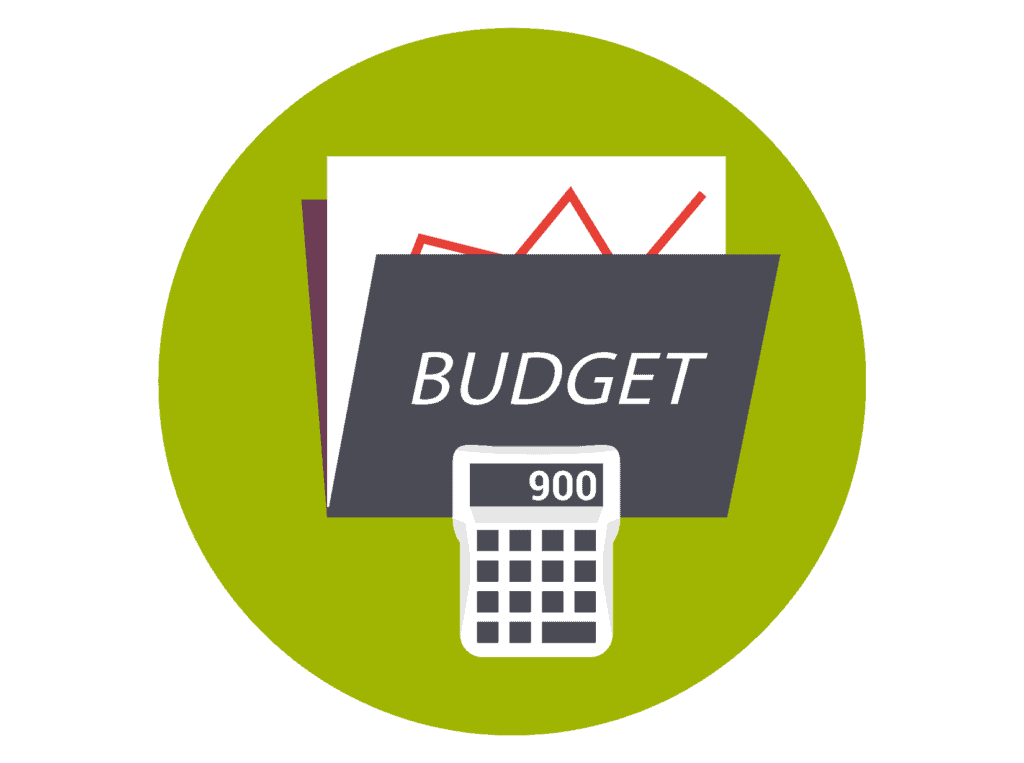
One of the best things you can do during this challenging time is to make a family budget or even just go over one. This will help you assess your current financial situation and make necessary adjustments.
If you don’t have a budget, now is the time to create one. You can use a personal finance app like Personal Capital to help you track your spending and create a budget.
If you already have a budget, take a close look at it and see if there are any areas you can cut back on. For example, you may be able to save money by eating out less or cutting back on your cable bill.
Tapping into the benefits of a budget can help you get a better handle on your finances. In addition, an automated money management app like Personal Capital can make the process much less stressful.
5. Utilize That Emergency Fund
If you have an emergency fund, there isn’t a better time to use it. An emergency fund is a savings account you set aside for unexpected expenses. This can be anything from a medical bill to car repairs.
If you don’t have an emergency fund, now is the time to start. First, you can open a savings account with your bank or credit union. Once you have the account open, start setting aside money each month so you’ll have it when you need it.
If you’re having big money problems, using your emergency fund can help you avoid debt. This will give you the financial breathing room you need to get back on your feet.
6. Reduce Unnecessary Expenses
Another critical thing to focus on during this time is to try and reduce unnecessary expenses (especially in a high cost of living area). This will free up money you can use to pay off debt or build your emergency fund.
There are many ways you can reduce expenses. You can start by cutting back on non-essential items like cable TV, eating out, and shopping. You can also negotiate your bills, get rid of subscriptions, and shop around for better deals on insurance.
Money savings challenges are also another great way of reducing to reduce some unnecessary spending.
Reducing expenses and living within your means may not be the funnest, but it can help you save money during this difficult time.
7. Negotiate to Lower Your Bills
One of the best ways to save money during this crisis is to negotiate your bills. For example, you can call your credit card company and ask for a lower interest rate. You can also contact your cable company and ask for a lower monthly bill.
Many resources can help you if you’re unsure how to negotiate. You can find dealing tips online or in financial books like Never Split the Difference: Negotiating As If Your Life Depended On It.
You can also use the app Trim to do all the negotiation for you and get your bills lowered. Trim negotiates cable, internet, phone, and medical bills for you and cancels old memberships. You may just relax while we search for discounts and deliver you even more savings.
Negotiating your bills can help you save a lot of money. And the sooner you act, the more you save.
8. Automate Your Savings
A financial crisis is a difficult time for anyone. It can be hard to make ends meet, let alone save money. However, it’s essential to try to put some money away. Even if you can only save a little bit, it can help you in the long run.
One way to automate your savings is to set up a separate account. This way, you can have money automatically transferred into your monthly savings account. This can help you make headway on your financial goals, even during tough times.
Another option is to use a financial app like Acorns. This app helps you save money by rounding up your purchases to the nearest dollar and investing the spare change. It can also help you transfer money into your savings account automatically.
9. Don’t Bring On More Credit Card Debt
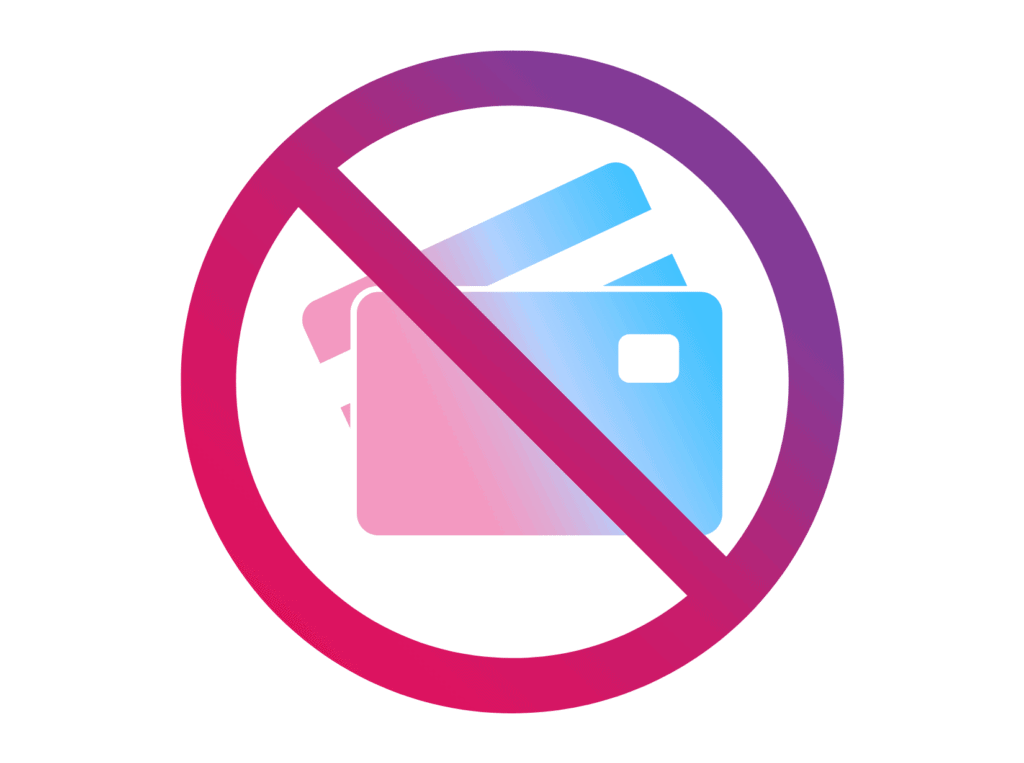
When facing a difficult financial period, avoiding adding to your debt is essential. This can be tempting, but it will only worsen your situation.
If you’re struggling to make ends meet, using your credit cards can help you stay afloat. However, this should only be done as a last resort. You should only use your credit cards if you can make the payments each month. Otherwise, you’ll end up with even more debt.
Try to use cash only during this time. This will help you stay out of debt and keep your finances under control.
10. Sell Items Around The House
If you’re having financial problems, one option is to sell items around your house. This can help you raise money quickly and get rid of clutter.
There are several ways you can sell your stuff. You can have a garage sale, sell items online, or take them to a consignment store. Bonanza or Swappa are also great ways to sell stuff online.
11. Get A Side Hustle
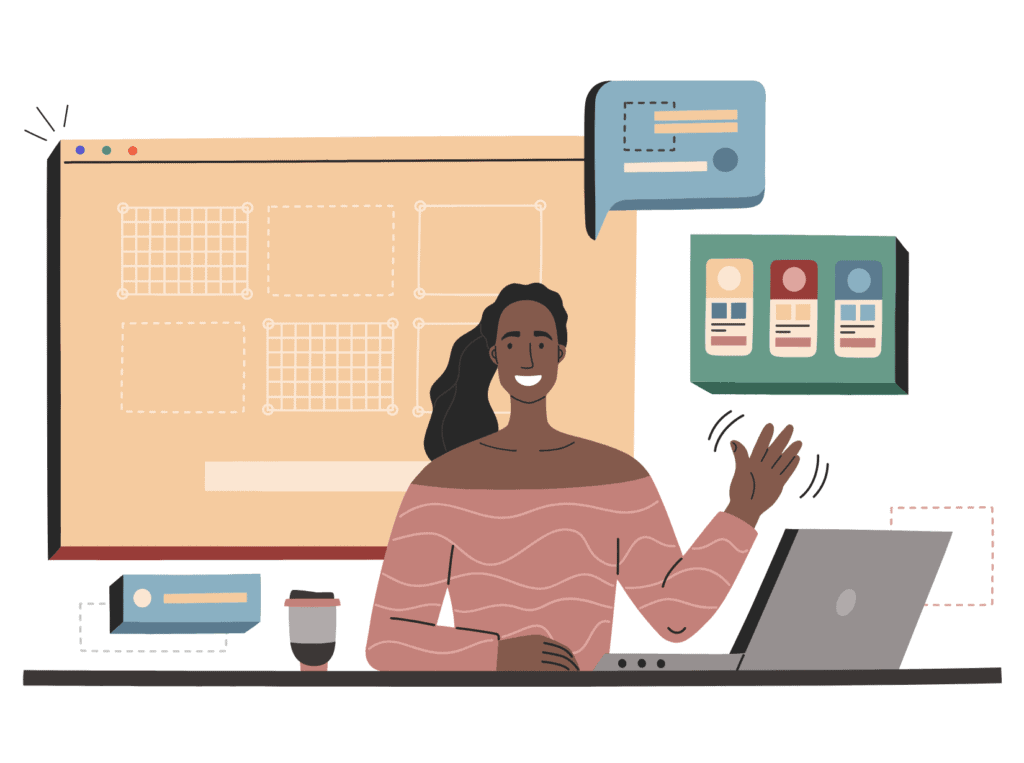
One of the best ways to get through this is to find a side hustle. A side hustle is a way to make some extra money on the side. It can help you pay down debt, save money, and build your financial stability.
Steady is a web and mobile app that allows people to discover part-time, hourly, and on-demand work possibilities.
And Fiverr is a global online marketplace offering tasks and services, known as ‘gigs,’ beginning at the cost of $5 per job performed.
So if you’re looking for a way to make extra money during a financial crisis, check out Steady and Fiverr. They can help you get started on your side hustle and economic recovery.
12. Ask For Help
If you’re struggling to make ends meet, don’t hesitate to ask the government for assistance. Some people and organizations can help you get back on your feet, for example:
- Low Income Home Energy Assistance Program (LIHEAP)
- Supplemental Nutrition Assistance Program (SNAP)
- Temporary Assistance for Needy Families (TANF)
- Housing Choice Voucher Program (Section 8)
- The Earned Income Tax Credit (EITC)
Many financial assistance programs are also available for veterans, seniors, disabled people, and single mothers. You can find more information by contacting your local government office.
13. Open A Gofundme
If you’re in a money crisis, one option is to open a Gofundme account. A Gofundme account is an online fundraising platform that allows people to raise money for personal causes.
Opening a Gofundme account is easy and only takes a few minutes. First, you’ll need to create an account and provide basic information about yourself and your financial situation. Once you’ve created your account, you can start sharing your story and raising money from friends, family, and the general public.
Gofundmes are a great way to raise money fast during a financial crisis. They can help you pay for medical bills, travel expenses, or other unexpected costs. If you need financial assistance, be sure to check out Gofundme.
14. Consider A 0% Loan
One of the best things you can do to consider when you need some extra cash is to take out a 0% loan. This type of loan can help you save on interest and get back on your feet financially. Here are some things to remember when considering a 0% loan.
First, high-interest rates can make it difficult to get out of debt. If you have a high-interest rate on your credit card, you may find that the minimum payments are too high to make a dent in your balance. A 0% loan can help you save on interest and get out of debt more quickly.
Second, a 0% loan can give you some breathing room if you’re struggling to make ends meet. You can use the money from the loan to pay off high-interest debt, such as credit cards, or cover other expenses, such as rent or utilities.
Third, a 0% loan can help improve your credit score. If you can make all of your payments on time and in full, you’ll start to see your credit score improve. This can help you qualify for better loans in the future.
Fourth, a 0% loan can provide peace of mind during a financial crisis. Knowing that you have a plan to get out of debt can help reduce stress and give you the motivation you need to stick with your plan.
If you’re considering a 0% loan, shop around and compare offers from different lenders. You’ll want to find the loan that best meets your needs and that you’re comfortable with.
15. Think About Filing For Bankruptcy
During a personal financial crisis, it’s crucial to act fast and make decisions that will help you in the long term.
Filing for bankruptcy can be complex, but it may be the best option if you’re struggling to keep up with credit card payments or other debts. Personal bankruptcy can help you get out of debt and rebuild your credit.
If you’re considering filing for bankruptcy, here are some things to think about:
- What type of bankruptcy should you file for?
- How will filing for bankruptcy affect your credit?
- What are the long-term effects of bankruptcy?
Filing for bankruptcy can be a complicated process, so it’s important to understand all of your options before making a decision. Talk to a financial advisor or credit counselor to help understand your choices.
16. Watch Out For Scams
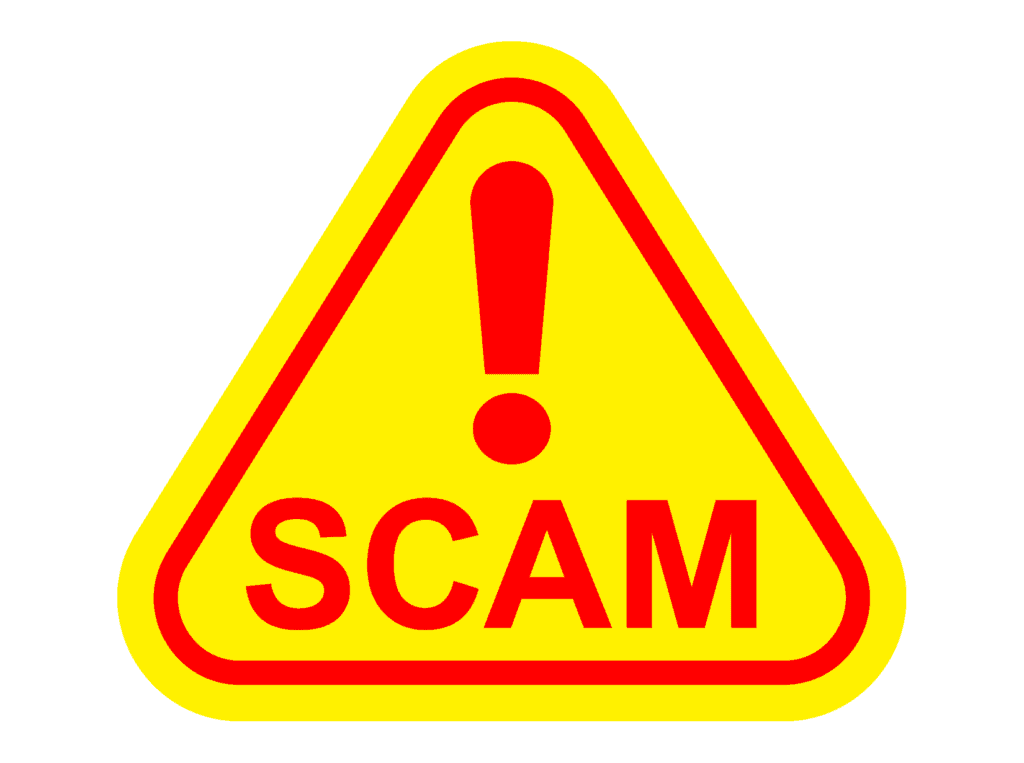
When you’re amidst a personal financial crisis, it’s crucial to be extra vigilant about scams. Many types of scams can target people in financial distress, so it’s essential to be aware of the most common ones.
One type of scam is credit card fraud. This is when someone uses your credit card number to make unauthorized charges. If you’re not careful, you could end up with a hefty bill that you can’t afford to pay.
Another type of scam is personal loan fraud. This is when someone offers you a loan with extremely high-interest rates. If you’re desperate for money, you might be tempted to take out this loan, but it could cost you a lot more than you can afford.
Finally, one of the most common banking scams to look out for is the overpayment scam. Someone sends you a check and tells you to deposit it in your bank account and wire back part of the money, but the check is fraudulent. You’ll have to pay your bank the amount of the phony check and any money you wired.
So please, keep your eyes open.
17. Be Kind To Yourself
Finally, during a personal financial crisis, one of the most important things you can do is to be kind to yourself. This may seem like an impossible task – but it’s vital.
Remember that you are going through a tough time, and cut yourself some slack. Forgive yourself for any mistakes you may have made in the past and focus on the present.
FAQ
What are the signs of a financial crisis?
Some signs that you may be experiencing a personal financial crisis include:
- You’re struggling to make ends meet and falling behind on bills
- You’ve maxed out credit cards or taken out high-interest loans
- You’re considering filing for bankruptcy
- You’re being targeted by scams
How do you solve personal financial problems?
However, some steps you may want to take to get out of debt and improve your financial situation include:
- Making a budget and sticking to it
- Consolidating debt
- Getting help from a credit counseling or financial advisor
How can a personal financial crisis be avoided?
There are a few things you can do to avoid a personal financial crisis, such as:
- Build an emergency fund
- Create a budget and stick to it
- Live within your means
- Pay off debt
- Save for retirement
What happens during a financial crisis?
During a personal financial crisis, you may have to make tough financial decisions. You may need to file for bankruptcy, consolidate debt, or get help from credit counseling or a financial advisor. Unfortunately, you may also be targeted by scams.
Should I tell my spouse about my personal financial problems?
If you’re married, discussing your financial difficulties with your spouse is important. You’ll need to work together to find a solution that works for both of you. You may need to make some tough decisions, but it’s essential to communicate openly and honestly with each other.
Summary
You can do this.
We’ve given you some great tips to help you get started, but the most important thing is to take action. So implement one or two of these strategies today and see how they work for you.
Remember, it’s not about making huge changes all at once – just start small and gradually make progress. And if you ever feel like you need a little more support along the way, don’t be afraid to ask for help from your friends or family.
Good luck conquering your personal financial crisis.
What tip will you use?
Will you use Personal Capital to help automate your budget process?
Or will you use Fiverr to help you land a side gig to help make some extra cash?
Hello! I'm Charles. 1st gen millionaire, real estate investor, health enthusiast, and military veteran. In the last 17 years, I have managed billions of dollars of resources for the Department of Defense. Created financial management plans that enabled fellow service members to get out of thousands of dollars in debt and tailored wellness plans that helped people reverse and eliminate high-blood pressure, pre-diabetes, and obesity. Learn more about me here.